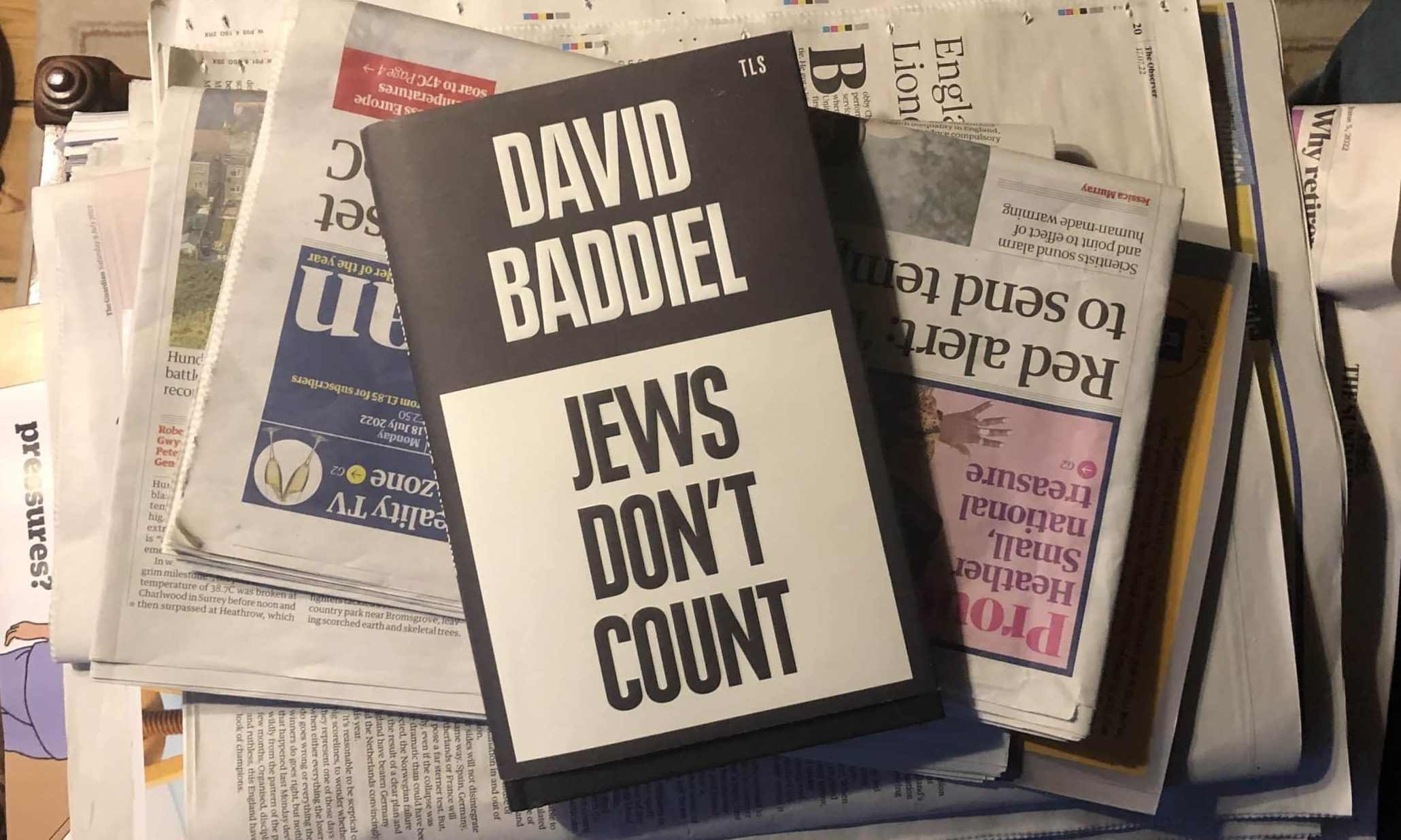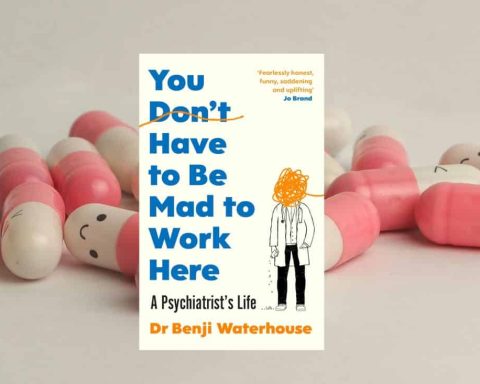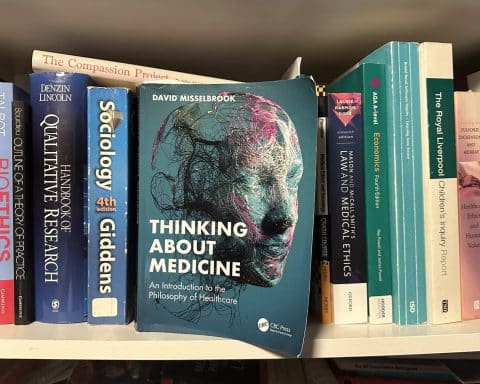
Sometimes it is dangerous to browse a book with a provocative title — if you have too many books and are trying not to buy another, or if you are happily nested in a cosy little world of unexamined preconceptions. I wondered, on picking the book off the display, what comedian David Baddiel could possibly mean.
A provocation arises on the very first page as he describes a novel, by a Jewish screenwriter, being criticised for being ‘White-male-cis-het’ in its perspective. ‘Anyone occupying this square of characteristics’, he writes, is considered to have four head starts in life; be privileged. This provocative statement leads into the ‘Jews don’t count’ hypothesis. In essence, he unpacks the idea that either you can’t be racist to or that is somehow ok to be racist to a Jew, because Jews are White and rich.
“Jews Don’t Count, in essence, is a reflective essay and not an academic treatise or in-depth journalism.”
The ridiculousness of this position (both parts of it!) should be obvious, but clearly is not to many. In the stream of richly articulate consciousness that follows, he discusses the holocaust, the portrayal of Jews in the media, and anti-Jewish rhetoric. Baddiel reflects on his personal experience, social media, references to reading and writing novels, and debates in contemporary politics and sport (football fans chanting ‘Yiddo’ at Tottenham Hotspur and their supporters).
He reflects on the difference between the term ‘Jew’ and ‘Jewish person’. The phrase ‘Jewish person’ is used to destigmatise by some and to stigmatise by others; however, its very presence is suggestive that stigma exists and contributes to stigma. It implies that there are two kinds of person — Jews are people! He claims the description ‘Jew’ in his Twitter profile in order to destigmatise it and claim his identity as an essential and worthwhile description of and for himself.
Jews Don’t Count, in essence, is a reflective essay and not an academic treatise or in-depth journalism. The book is one long chapter without subsections, and can be read cover-to-cover on a long train journey. Sometimes the lack of an overt plan makes some of Baddiel’s points read like the point in the argument where someone yells, ‘And another thing!’; however, in these days of identity politics and a widespread forgetting of the 20th century and the war on fascism, Baddiel does not so much lance a boil with his ‘Jews don’t count’ as lay open the sebaceous cyst, shelled intact to show the medical student.
“Do some racisms or other sources of discrimination not count, count less than others?”
It should strike a chord with anyone whose background identity is invisible to the naked eye and yet subject to causally or even violent abuse. This book made me reflect on the time I was congratulated on my excellent pronunciation of English by a patient and the time I was told to f—k off back to my own country at a taxi-rank.
As a UK-born British citizen who is white-male-cis-het, but who has a polysyllabic name and matching cultural heritage, Baddiel’s perspective felt easy to identify with, but it nonetheless expanded my perspective — especially in relation to labels and identity. I wonder, however, how it might be received by readers who are more overtly stigmatised and disadvantaged. Or indeed by those who are cosily shrouded in a blanket of identity and entitlement.
Do some racisms or other sources of discrimination not count, count less than others? I would recommend reading the book as a subversive addition to equality, diversity, and inclusion training, or as a seasonal gift for a racist relative who reads. Every source of injustice counts, and every person counts. This book is sold to ‘people who consider themselves on the right side of history’. Is that us?
Featured book: David Baddiel, Jews Don’t Count, TLS Books, 2021, HB, 144pp, £8.69, 978-0008399474
Featured image: Photo by Andrew Papanikitas, 2022.








